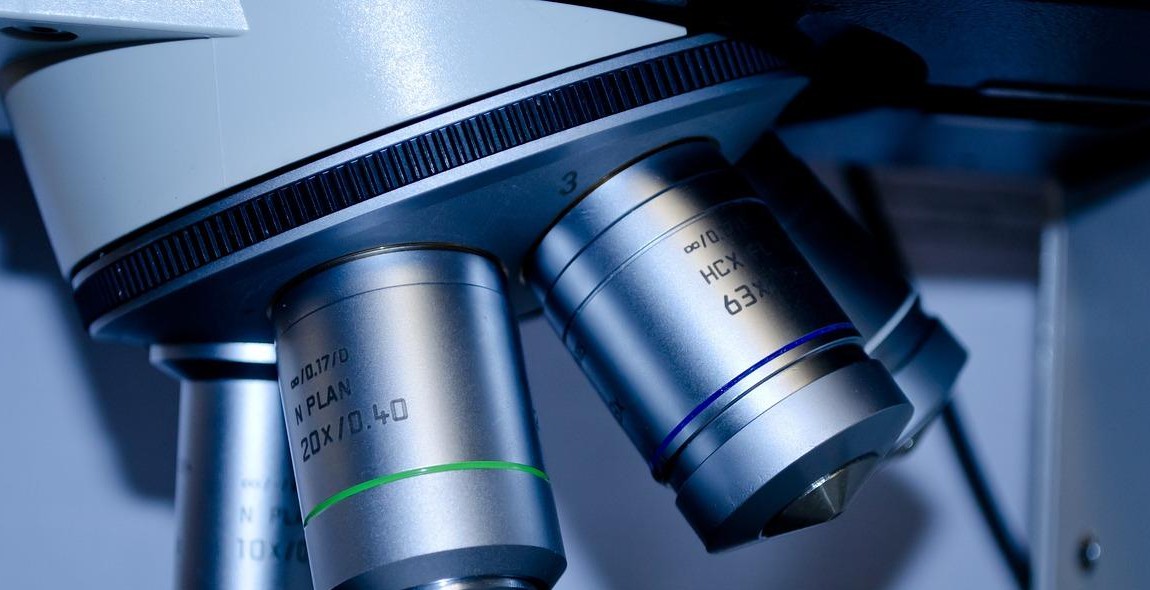How to Research for Non-Fiction Writing: Gathering Reliable Information and Fact-Checking
As a professional writer with over a decade of experience in non-fiction writing, I know firsthand the importance of thorough research and fact-checking. Whether you’re writing an informative article, a memoir, or a historical account, it’s crucial to gather reliable information to ensure the accuracy and credibility of your work.
My Experience with Non-Fiction Writing
Throughout my career, I have written for various publications and clients, covering topics ranging from science and technology to business and finance. In every project, I have approached research as a critical component of the writing process. Over time, I have developed effective strategies for finding and evaluating sources, organizing information, and fact-checking.
Research can be a daunting task, especially for new writers or those tackling unfamiliar subjects. However, with the right approach, it can also be a rewarding and enlightening experience. In this article, I will share my insights and tips on how to research for non-fiction writing, including:
- Defining your research goals
- Finding and evaluating sources
- Organizing and analyzing information
- Fact-checking and verifying information
By following these guidelines, you can ensure that your non-fiction writing is accurate, informative, and engaging for your readers.

Why Research is Important in Non-Fiction Writing
As a non-fiction writer, it is important to establish credibility with your readers. One of the best ways to do this is through thorough research. Research helps you to provide accurate information, avoid plagiarism and ultimately become a trusted source of information for your readers.
Establishing Credibility
Research is crucial to establishing credibility in non-fiction writing. By conducting research, you can provide evidence to support your claims and arguments. This helps to demonstrate to your readers that you have done your due diligence and are knowledgeable about the topic at hand. Without research, your writing may come across as uninformed or biased, which can damage your credibility.
Avoiding Plagiarism
Research is also important in avoiding plagiarism. It can be tempting to borrow information from other sources without proper attribution, but this can lead to serious consequences. By conducting your own research, you can ensure that your writing is original and properly cited. This not only protects you from legal issues but also helps to maintain your credibility as a writer.
Providing Accurate Information
Finally, research is essential to providing accurate information to your readers. As a non-fiction writer, you have a responsibility to ensure that the information you are presenting is correct. By conducting research, you can verify the accuracy of your sources and ensure that your writing is based on reliable information. This helps to build trust with your readers and ensures that your writing is informative and helpful.
In summary, research is vital to non-fiction writing. It helps to establish credibility, avoid plagiarism, and provide accurate information. By taking the time to conduct thorough research, you can become a trusted source of information for your readers and create high-quality non-fiction writing.

Types of Sources to Use in Non-Fiction Writing
When it comes to non-fiction writing, it is important to gather reliable information from various sources. Here are the three types of sources that can be used:
1. Primary Sources
Primary sources are original materials that provide firsthand information about a certain topic. These sources can include:
- Interviews
- Speeches
- Diaries
- Letters
- Photographs
- Videos
- Original research or experiments
Using primary sources can add credibility and authenticity to your non-fiction writing. However, it is important to ensure that the source is reliable and unbiased.
2. Secondary Sources
Secondary sources are materials that interpret or analyze primary sources. These sources can include:
- Books
- Articles
- Documentaries
- Biographies
- Historical analysis
Using secondary sources can provide additional context and analysis to your non-fiction writing. However, it is important to ensure that the secondary source is also reliable and accurate.
3. Tertiary Sources
Tertiary sources are materials that compile and summarize information from primary and secondary sources. These sources can include:
- Encyclopedias
- Almanacs
- Guidebooks
- Indexes
Using tertiary sources can provide a quick and easy way to gather basic information about a topic. However, it is important to keep in mind that these sources may not always be entirely accurate or up-to-date.
| Source Type | Examples |
|---|---|
| Primary Sources | Interviews, speeches, diaries, letters, photographs, videos, original research or experiments |
| Secondary Sources | Books, articles, documentaries, biographies, historical analysis |
| Tertiary Sources | Encyclopedias, almanacs, guidebooks, indexes |

How to Conduct Effective Research for Non-Fiction Writing
As a professional article writer and content creator, I have found that conducting effective research is one of the most important aspects of non-fiction writing. Here are some tips on how to gather reliable information and fact-check your work.
Define Your Topic
The first step in conducting effective research is to define your topic. This means identifying the specific subject matter you will be writing about and breaking it down into manageable subtopics. This will help you focus your research and ensure that you don’t waste time on irrelevant information.
Create a Research Plan
Once you have defined your topic, create a research plan that outlines the sources you will use and the information you need to gather. This can include books, academic journals, online articles, and interviews with experts in the field. A research plan will help you stay organized and ensure that you cover all the necessary information.
Use Reliable Sources
It’s important to use reliable sources when conducting research for non-fiction writing. This means using sources that have been vetted by experts in the field and have a reputation for accuracy and reliability. Be wary of sources that are biased or lack credibility. When in doubt, consult multiple sources to verify information.
Take Notes and Organize Information
As you conduct your research, take detailed notes and organize the information in a way that makes sense to you. This can include creating an outline, using a mind map, or using a spreadsheet to organize data. The key is to find a system that works for you and allows you to easily access and reference the information later on.
Fact-Check Your Information
Before using any information in your non-fiction writing, it’s important to fact-check it for accuracy. This means verifying the information with multiple sources and ensuring that it is up-to-date and relevant. Fact-checking is a crucial step in ensuring that your writing is credible and trustworthy.
- Define your topic
- Create a research plan
- Use reliable sources
- Take notes and organize information
- Fact-check your information
By following these tips, you can conduct effective research for your non-fiction writing and ensure that your work is accurate, reliable, and trustworthy.

Tools and Resources for Non-Fiction Research
When it comes to researching for non-fiction writing, it’s essential to gather reliable information and fact-check everything. Fortunately, there are many tools and resources available to help you with this process.
Online Databases
One of the best places to start your research is with online databases. These databases provide access to a vast amount of information that you can use to support your writing. Some popular online databases include:
- JSTOR – Provides access to academic journals, books, and primary sources in various disciplines.
- Questia – Offers access to books, articles, and research papers.
- EBSCOhost – Provides access to academic journals, magazines, and newspapers.
Libraries
Another great resource for non-fiction research is libraries. Most libraries have a vast collection of books, journals, and other materials that you can use to support your writing. You can also access online databases and other resources through library websites. Some popular libraries include:
- Library of Congress – The largest library in the world with over 170 million items.
- New York Public Library – One of the largest public libraries in the United States.
- Boston Public Library – The third-largest public library in the United States.
Interviews
Interviews can provide valuable insights and information for non-fiction writing. You can conduct interviews with experts, witnesses, and other individuals who have relevant knowledge and experience. Some tips for conducting interviews include:
- Prepare a list of questions in advance.
- Be respectful and professional.
- Record the interview with permission.
- Follow up with a thank-you note or email.
Surveys
Surveys can also provide useful information for non-fiction writing. You can create surveys to gather data and opinions from a specific group of people. Some popular survey tools include:
- SurveyMonkey – A popular online survey tool with free and paid options.
- Qualtrics – A professional survey tool with advanced features.
- Google Forms – A free and straightforward survey tool that integrates with Google Drive.
| Survey Tool | Free Option | Paid Option | Advanced Features |
|---|---|---|---|
| SurveyMonkey | Yes | Yes | Advanced reporting, question types, and branding. |
| Qualtrics | No | Yes | Advanced reporting, question types, and integrations. |
| Google Forms | Yes | No | Basic question types and integrations. |

Conclusion
Research is an essential part of non-fiction writing. It provides the writer with the necessary information and facts to create a compelling and informative article. However, gathering reliable information and fact-checking can be a daunting task. It requires patience, diligence, and attention to detail.
One of the most important things to keep in mind while researching is to use reputable sources. This includes academic journals, government websites, and expert interviews. Always be wary of biased or unreliable sources, as they can compromise the credibility of your work.
Fact-checking is equally important. Double-checking your facts and figures can save you from embarrassing mistakes and potential legal issues. Use fact-checking tools such as Google Scholar, Snopes, and FactCheck.org to verify your information.
Organizing your research is also crucial. Use tools like spreadsheets, tables, and mind maps to keep track of your sources and information. This will make the writing process much smoother and more efficient.
Finally, always remember to cite your sources correctly. This not only gives credit to the original author but also adds credibility to your work. Use citation styles such as APA, MLA, or Chicago to ensure accuracy.
- Use reputable sources
- Fact-check your information
- Organize your research
- Cite your sources correctly
By following these tips, you can ensure that your non-fiction writing is well-researched, informative, and credible.
